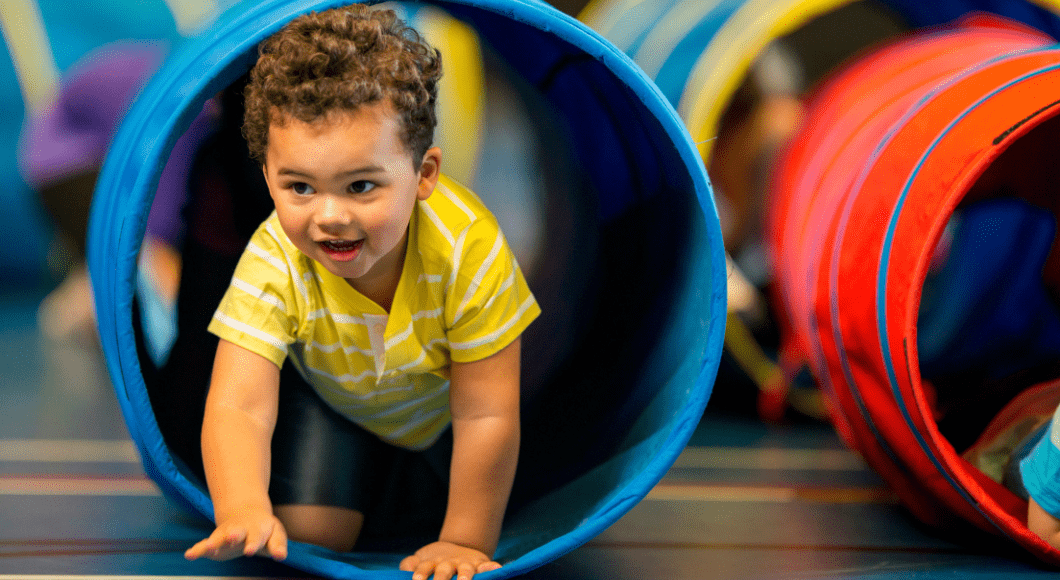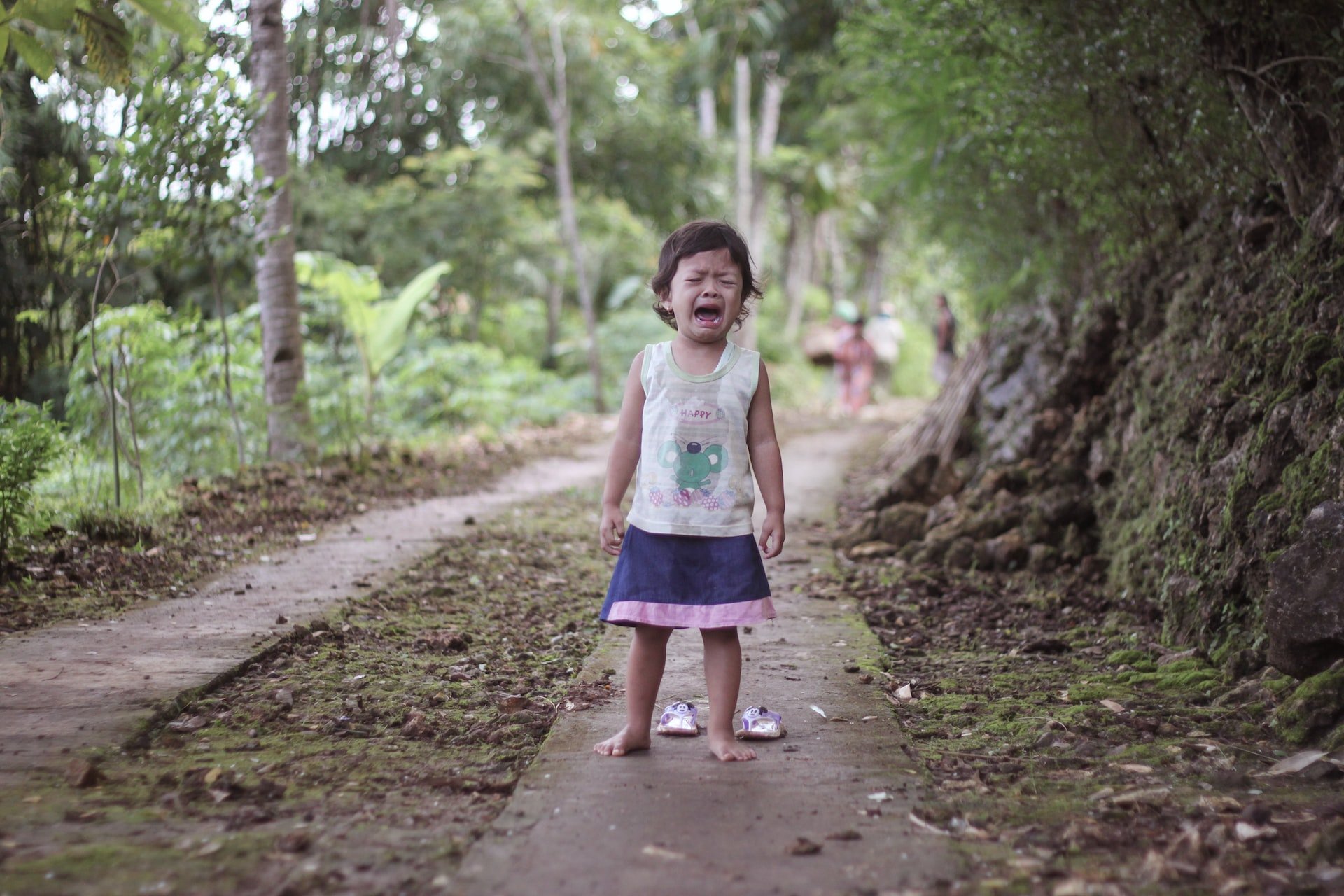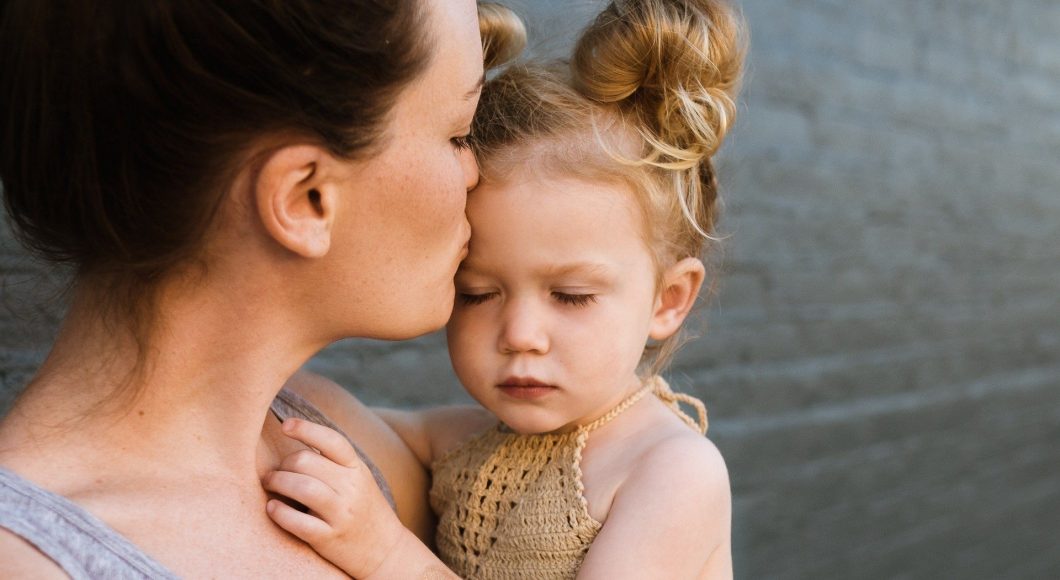Disclaimer :: This article contains affiliate links. Collin County Moms may receive a commission if you make a purchase using these links. Thanks for supporting Collin County Moms!
 If there’s one thing all toddler parents have in common, it’s dealing with tantrums. In fact, as I’m trying to write this, both of my toddlers are having a meltdown. One, because her neighbor and friend is unable to play right this minute. The other, because he can’t eat dirt.
If there’s one thing all toddler parents have in common, it’s dealing with tantrums. In fact, as I’m trying to write this, both of my toddlers are having a meltdown. One, because her neighbor and friend is unable to play right this minute. The other, because he can’t eat dirt.
It seems like our sweet angels turn into uncontrollable, raging monsters at the drop of a hat. Although toddler tantrums are inevitable, I’ve learned — through trial and error and a few informative books — that what really matters is how you respond. Sometimes we can successfully calm our toddler. Other times, it takes all we have not to lose our cool. Sometimes, we do lose it. (And that’s okay. We’re only human, after all).
Recently, I read a couple books that helped me to better understand toddlers’ brains, to use that knowledge to address tantrums in a positive way, and to work on building a stronger connection with my children.
Understanding Your Toddler’s Brain
According to The Whole Brained Child by Daniel J. Siegel, toddlers behave the way they do because their “upstairs brains” are not fully developed. They don’t yet have the coping skills to deal with everyday upsets and are unable to react logically.
I think it helps to know that they aren’t throwing fits to be malicious. Rather, they can’t yet physiologically process their emotions and react rationally.
Still, it’s not easy to stay calm, cool, and collected when your toddler is throwing a major tantrum.

Handle Tantrums
One of my favorite parenting books is Peaceful Parent, Happy Kids by Dr. Laura Markham. It gave me a lot of helpful advice on handling tantrums. Some of my favorites include:
- If you feel like you are going to yell or react with anger, stop talking, take 10 deep breaths, and shake your hands if needed. If you have to leave the situation for a minute to calm down, do so. If you’re able, tell your kids that you’re working hard to stay calm but need to take a break. According to the book, it’s safe to return to the situation when your child no longer feels like the enemy.
- Acknowledge your child’s emotions. For example: “You’re angry that your friend can’t play right now.”
- Connect with toddlers by holding them, listening, and giving them a minute to cry.
- If your toddler asks you to go away, listen. From a safe distance, remind him or her that you are here to help when he or she is ready.
According to the book, it’s best to save teaching opportunities for after the tantrum. When your child has calmed down, it’s okay to talk about his or her feelings and help work through those emotions. Give a reminder that you’re always there to listen and that you love your child.
>> RELATED READ :: How to Wrangler a Toddler and Those Big Feelings <<

Build a Connection
In addition to being there for your child mid-tantrum, it’s important to foster a strong relationship in general. In theory, if you and your child have a solid connection, he or she is likely to throw less tantrums in the first place.
I love the idea of giving your child 15 to 20 minutes of undivided attention each day. However, I realize this can be unattainable depending on your situation. I think a good goal is to be mindful of the importance of one-on-one time and intentionally schedule in as much as you can manage.
Being a full-time working parent, I try to take advantage of whatever time I have with my kids. Often, this looks like heartfelt conversations on the way to school or laying down with my daughter before bed. My ultimate goal is to nurture a safe space for my kids to feel comfortable sharing their feelings, both good and bad.
Maintain the Connection
I think it’s important to build strong relationships when our kids are young. This way they feel comfortable coming to us with the hard stuff when they are older. My husband and I have set a goal to alternate “date nights” with our children once or twice a month to maintain our connection and give them the one-on-one time they need.
My daughter is starting kindergarten next year, and from what I hear, the years really start to fly by once your child starts school. I know our lives are sure to get busier, but I want to make a conscious effort to spend intentional time with our kids and stay in the loop.
Tantrums are hard. It can be difficult to react to an irrational situation with reason. I hope this information helps you to look at your toddlers’ meltdowns from a different perspective and think about new ways to handle them.













